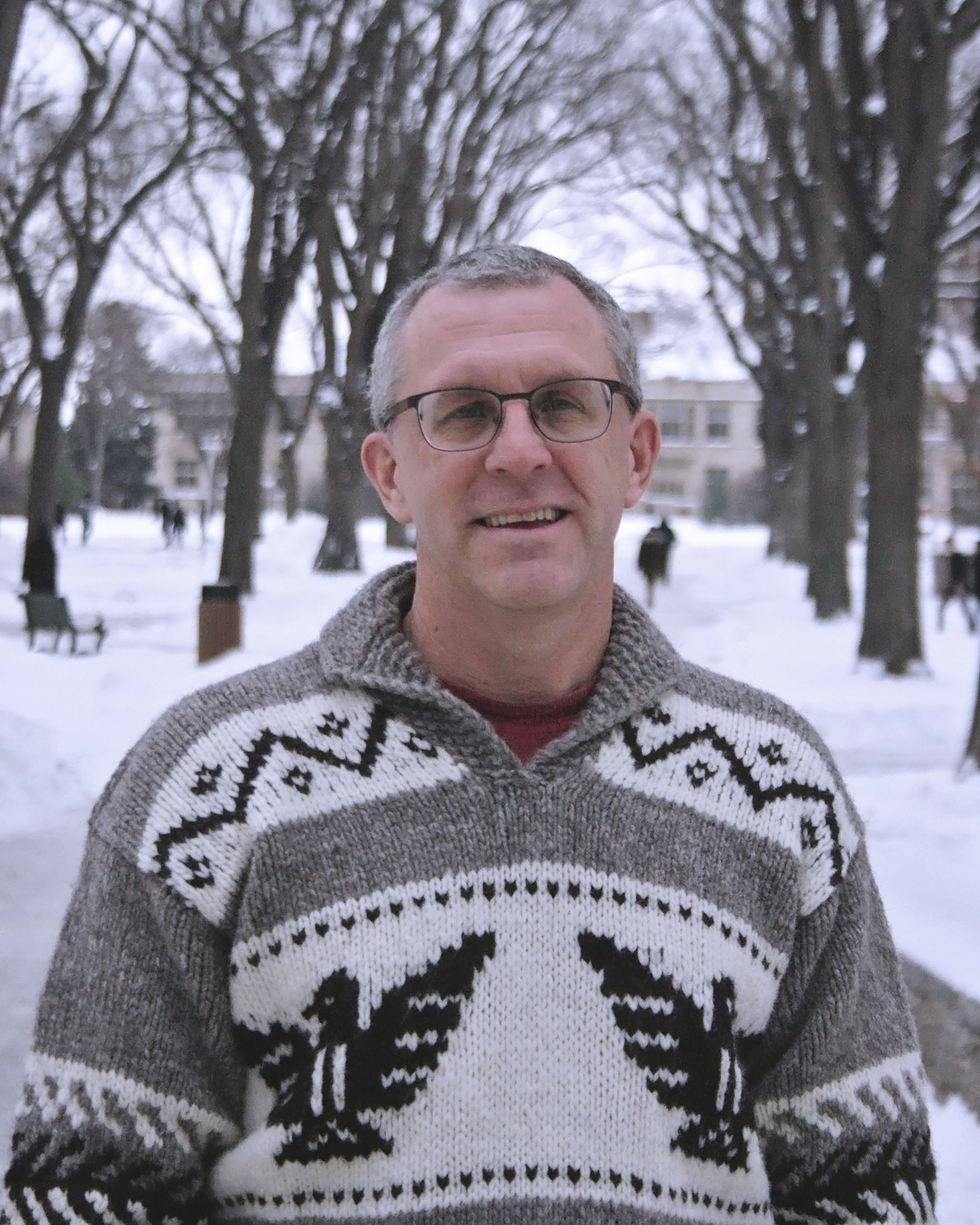
Unbounded Research
Dr. Laroque, a faculty member in the College of Agriculture and Bioresources, was a leader of undergraduate research before it was even a thing. Now offering First-Year Research Experiences for the fifth time, and many more higher-level research classes besides, Laroque’s participation in student-led research is simply second nature by now
Dr. Colin Laroque, a faculty member in the College of Agriculture and Bioresources, was a leader of undergraduate research before it was even a thing. Now offering First-Year Research Experiences for the fifth time, and many more higher-level research classes besides, Laroque’s participation in student-led research is simply second nature by now.
It’s difficult for Laroque to pinpoint when exactly he became involved in undergraduate research. As a student, he remembers how the classes he enjoyed the most were ones with lots of hands-on exercises and fieldwork. It seemed safe to assume that for his own students to enjoy their classwork as much, they should also be going outside of the classroom to get research experience and first-hand knowledge of what being in the field feels like. The way Laroque sees it, if the best researchers can use world-class facilities like the Canadian Light Source (CLS) synchrotron, undergraduate students should be able to do the same. After all, undergrads are not just students; for Laroque, they’re also his colleagues, and the “research we do is not just my research, it’s our research.”
Students who go into Laroque’s classes don’t always have a clear idea of what it will be like. By the end of the courses, they “get to do things and go places they never even dreamed of.” From conducting their very own research at the CLS to creating the course syllabus and evaluations as a class by their fourth-year, Laroque gives students a the chance to invest in every decision regarding their education. In his experience, stepping back and letting students take ownership of their learning trajectory always leads to them doing more, and better. Often, students themselves are surprised by how much they accomplished in one term or how far they pushed themselves and each other. Occasionally, a project that one group of students begins in one term is carried on by a new wave of students in the next. In fact, Laroque encourages them to create “legacy plans” to get them thinking — even dreaming — beyond one, single semester. Soon enough, students start coming to class with their eyes not just on the grade or credit they’ll receive with it, but on research itself, and the possibility and meaning of a project that continues once the course is over.
Once students begin to see the bigger picture, the results extend beyond the classroom. They also translate into other skill-sets that benefit Laroque’s students outside of academic settings. In the spring of 2017, a group of students researched the effects of using beet juice as a sustainable alternative to road salt in making winter driving safer. By semester’s end, students took their idea beyond the halls of the U of S all the way to Saskatoon City Council. Aside from the technical aspects of research, they also gained experience in public speaking, networking, and collaboration — skills that benefit current employees and job-seekers alike. Laroque’s students have also gone on to present before panels of Beamline scientists at the CLS, speak at national conferences, and publish their work in the U of S Undergraduate Research Journal (USURJ). Time and again, students who Laroque teaches or mentors walk away with a larger set of life skills than they expected, and are equipped with experiences that not only enhance their research-mindedness, but also overcome misconceptions of what research is and who is ‘allowed’ to do it.
Yet, of all those who benefit from Laroque’s incorporation of research into his classes, he says he gains just as much, if not more, than his students do. In fact, it’s hard to separate learning and teaching once you start seeing things the way Laroque does: “My research is my teaching and my teaching is my research.” On the one hand, letting students direct their learning (and his teaching) ensures that they are engaged and it keeps things dynamic and interesting for Laroque. With this approach, Laroque learns with and from undergraduates, even as he’s teaching them.
Although Laroque was always involved in student-led learning, he acknowledges that the transition can be difficult for professors who aren’t used to these methods. Referring to Willison and O’Regan’s Research Development Framework,* he admits it’s pretty standard for most instructors to fall into the red and orange categories, prescribing their student’s research-based learning or giving them certain parameters to work within. “I’ve always taught on the other end,” Laroque says, pointing beyond the column that reads “Unbounded Research.” While his process of engaging with undergraduate research has evolved, it has always been worthwhile for the simple reason that “it makes my classes better.” Even though some of his peers might be hesitant to take a step towards what might seem to be ‘relinquishing control,’ Laroque’s advice is to start slow and remember that support exists for instructors who want to reach the blue zone — or even go beyond it, wading into unbounded research with their students.
* “Unbounded Research” is the highest category of student autonomy in research, according to the Research Development Framework (RSD).

